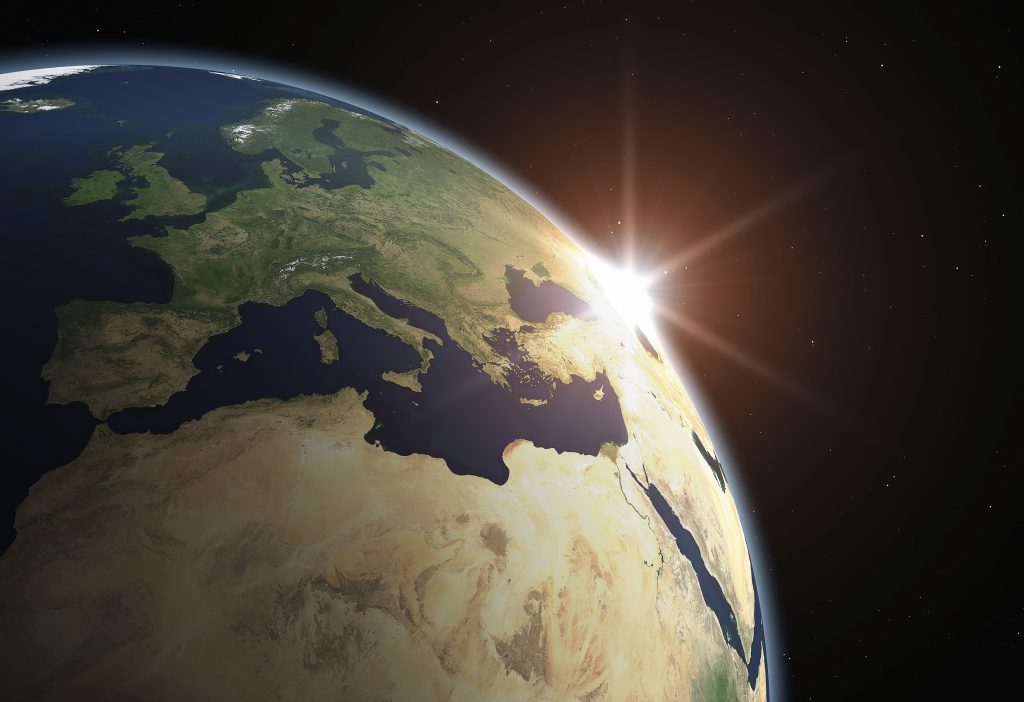
To listen to today’s reflection as a podcast, click here
Christianity has been on the receiving end of a lot of flak in recent years, and from a number of different quarters.
Take diversity, for instance. In a world that is increasingly multiethnic and multicultural, Americans (especially younger generations) tend to characterize Christians as angry, defensive people who sympathize with white nationalists and view immigrants as potentially dangerous criminals and terrorists.
For many, the religion centered around Jesus of Nazareth – a man of Middle Eastern descent known for his message of love – is incurably white, Western, and hostile. And it’s way past its expiration date for relevance in the modern world.
In her book Confronting Christianity, British-born theologian Rebecca McLaughlin, who holds a PhD from Cambridge, begs to differ.
“If you care about diversity,” she writes, “don’t dismiss Christianity. It is the most diverse, multiethnic, and multicultural movement in all of history.”
When Rebecca’s daughter was about four, the two of them went to play in a London park. There they encountered an older Chinese woman who had come to the park with her grandson. McLaughlin’s little girl, in that way in which kids sail blissfully over the boundaries of social etiquette, approached the woman and asked, “Do you trust in Jesus?” McLaughlin cringed.
“I’m sorry?” said the Chinese woman. Rebecca’s daughtered repeated, “Do you trust in Jesus?” McLaughlin admits she wanted the earth to swallow her whole. She explained that she was a Christian, and that her daughter liked to ask others if they were Christians, too.
“Oh, do I trust in Jesus?” said the older woman. “Yes! I do trust in Jesus! It’s the most important thing in the world. I’m so glad you do, too!”
Rebecca writes, “I had looked at an older, Chinese-speaking woman and assumed she was not a Christian. She had looked at a young, white-British woman and assumed the same. We were both wrong.”
One of the world’s best-kept secrets is that the message of Jesus has been sweeping across China for the past 40 years. Demographers estimate that by 2030 there will be more Christians in China than in the United States, and that by 2050 the People’s Republic will actually be a majority Christian nation. It’s a world turned upside-down.
McLaughlin recalls visiting a church in Eastern Europe years earlier. The young woman who led worship had been raised under Communism on a Romanian farm. She threw her arms around Rebecca and shouted, “Sister, I am so happy there are Christians even in England!”
Even in England.
From its earliest days, Christianity surged across all racial, social, and geopolitical lines. Historian Andrew Walls points out that Hinduism is still primarily centered in India. Buddhism’s home base remains in South Asia. Islam, even as it grows rapidly, remains largely oriented to the Middle East.
But Christianity has no “home.” It is has become part of the culture of every continent. People call on Jesus in their own tongues, and serve him through their own customs, in Tanzania, Korea, Scandinavia, Brazil, Russia, and Nebraska.
Yale law professor Stephen Carter, a leading black public intellectual, points out that the most truly representative Christian segment of American society is the one populated by black women.
“Around the globe, the people most likely to be Christians are women of color,” he observes. Then he adds, with a note of warning, “When you mock Christians, you’re not mocking who you think you are.”
Rebecca McLaughlin admits that when she and her family left London and moved to America, she was stunned to discover that evangelical Christianity in our neck of the woods has become associated with racism. “The New Testament is one of the most emphatically anti-racist texts ever written,” she notes.
Fear, unfortunately, is increasingly directed toward “those people” who every day are crossing our borders or flying into our airports from foreign points of origin.
What rarely makes the news is that most of the people who are trying to get into America are Christians.
“There is neither Jew nor Gentile, neither slave nor free, nor is there male and female, for you are all one in Christ Jesus” (Galatians 3:28). Even if the church, throughout history, has dropped the ball too many times to count, it cannot be denied that racial, social, and gender diversity have been part and parcel of the Jesus Movement from the beginning.
And that diversity will be on full display at the end of history:
“After this I looked, and there before me was a great multitude that no one could count, from every nation, tribe, people and language, standing before the throne and before the Lamb… And they cried in a loud voice, ‘Salvation belongs to our God, who sits on the throne, and to the Lamb!’” (Revelation 7:9-10)
That get-together will make our Super Bowl gatherings look like tea parties.
God makes it clear that the celebration won’t be the same without every ethnicity, race, and culture.
And the best part?
You and I are invited, too.
